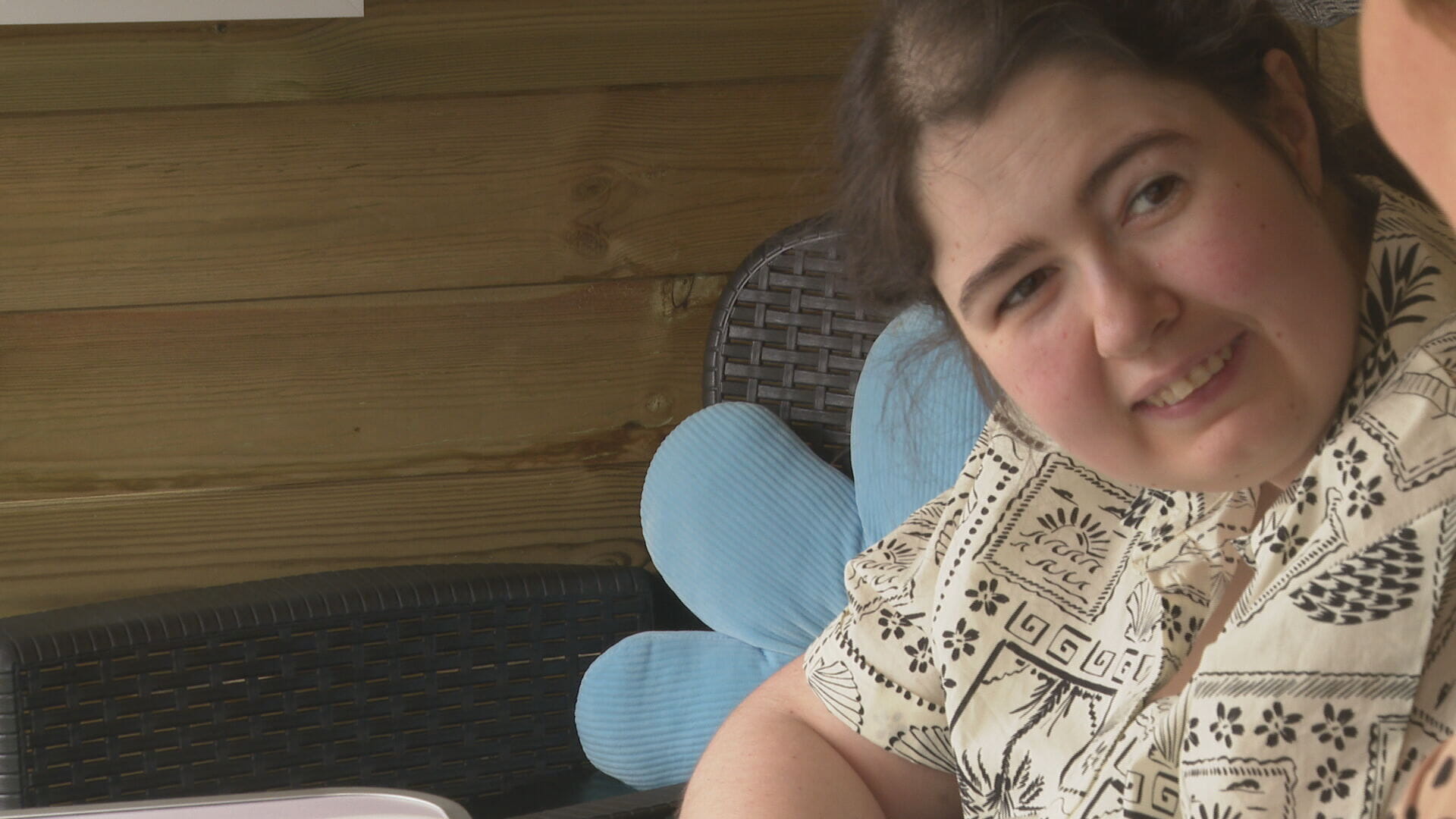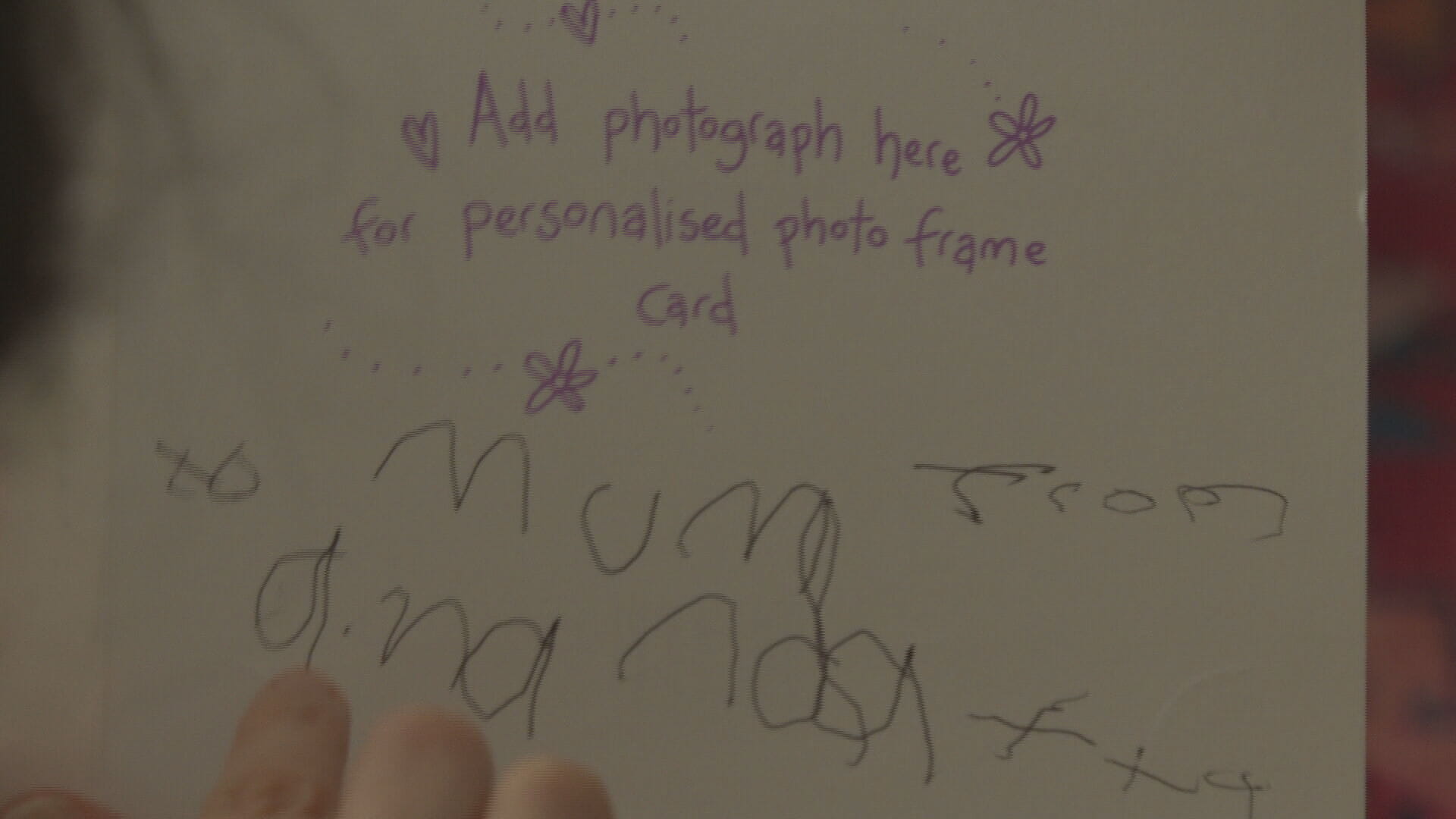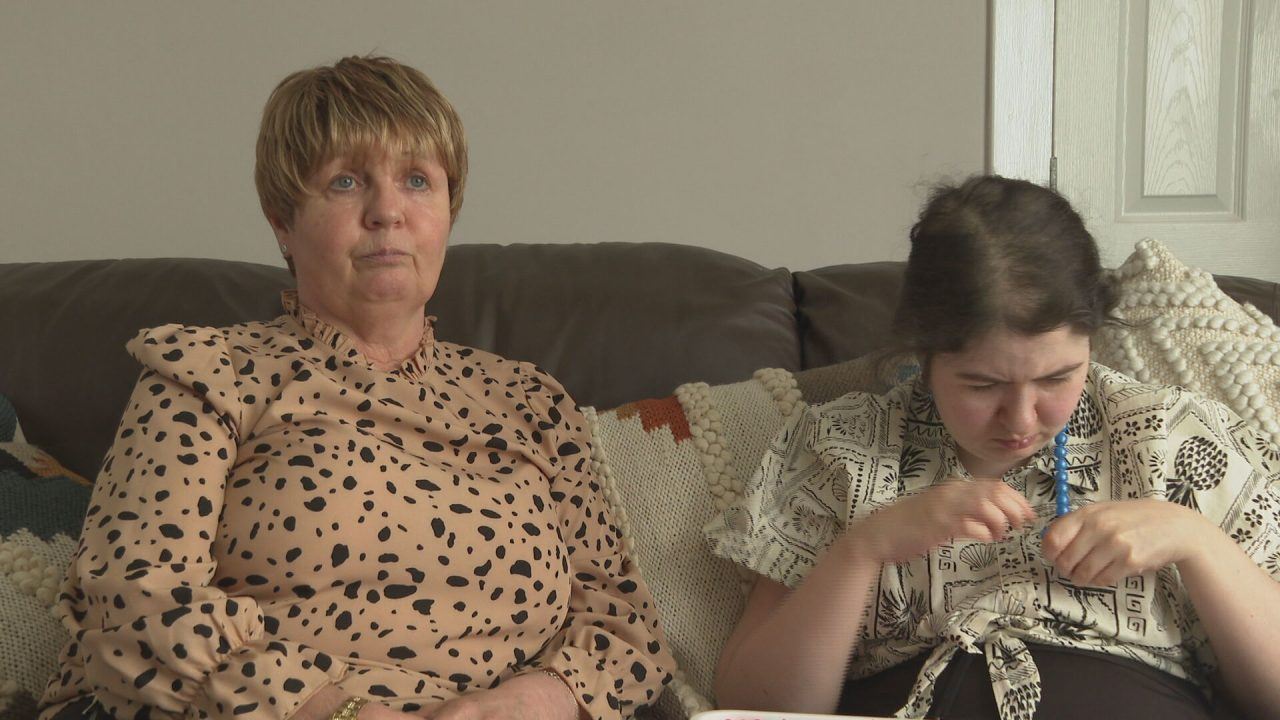New research has shed light on the enormous psychological impact on families caring for a child or adult living with Dravet Syndrome.
It’s a devastating and complex form of epilepsy that affects around 1 in 15,000 babies – the mother of one woman living with the condition has compared the emotional impact to a form of PTSD.
Marie McLeish’s daughter, Amanda, was 18 months old when she suffered a series of debilitating seizures – a hundred in one day.
She was eventually diagnosed with Dravet Syndrome – it’s left her needing round-the-clock care for the last 36 years.
“We never slept properly for those first five years,” Marie told STV News.
 STV News
STV News“My husband and I would take shifts every night to make sure Amanda was safe. It has a major impact on the whole family, we’re always on high alert. I know every sound in the house, it’s 24/7.”
She added: “I don’t actually think about it now, second nature to me, but it’s had a huge impact on me.
“Anxiety levels, stress levels, I’m sure I’ve had PTSD throughout this time. It’s very, very isolating as well.”
The study, which was conducted by researchers at the University of Glasgow, provides new insight into the ways in which parents cope and adjust to caring for a child with Dravet Syndrome – with a focus on adapting to trauma.
 STV News
STV NewsIt highlights the challenges families face and reveals an urgent need for better informed professional practice, and the development of packages of support.
“We have done 35 years of caring and there is no end – there is no suitable accommodation or respite that would meet the actual needs of our loved ones,” Marie said.
“You just continue to do it through love. You continue to do it. You just hope and pray that something better will come.”
Like her, parents taking part in the study described symptoms of psychological distress and PTSD.
They also told how the lack of support needed to care for those affected presents a continual struggle for them with costs to their mental health.
The condition can also cause intellectual disability and a range of difficulties with mobility, speech, behaviour, eating and sleeping.
 STV News
STV NewsAdditionally, those living with Dravet Syndrome are also at risk of Sudden Unexpected Death in Epilepsy – almost one in 5 children don’t make it into adulthood.
Marie said: “You’re putting your loved one to bed and it’s the last thing that enters your head…hopefully we see you tomorrow.
Galia Wilson, chair of Trustees for Dravet Syndrome UK, says: “Dravet Syndrome is a devastating, life-long and life-changing condition that affects the emotional well-being of all the family, but all too often this is overlooked.
“Someone with Dravet Syndrome needs 24/7 care for life. Severe and life-threatening seizures mean parents must constantly be on alert, while the developmental, behavioural and mobility aspects of the condition require constant support and care.
“This research serves as a call to action for greater awareness among all professionals involved in the care of families affected by Dravet Syndrome – to be mindful of signs of psychological distress and trauma, and importance of offering therapeutic interventions, such as talking therapies.
“By empowering parents like Marie to share their experiences, Dravet Syndrome UK hopes to bridge the gaps in understanding and help drive meaningful change.”
Follow STV News on WhatsApp
Scan the QR code on your mobile device for all the latest news from around the country





























